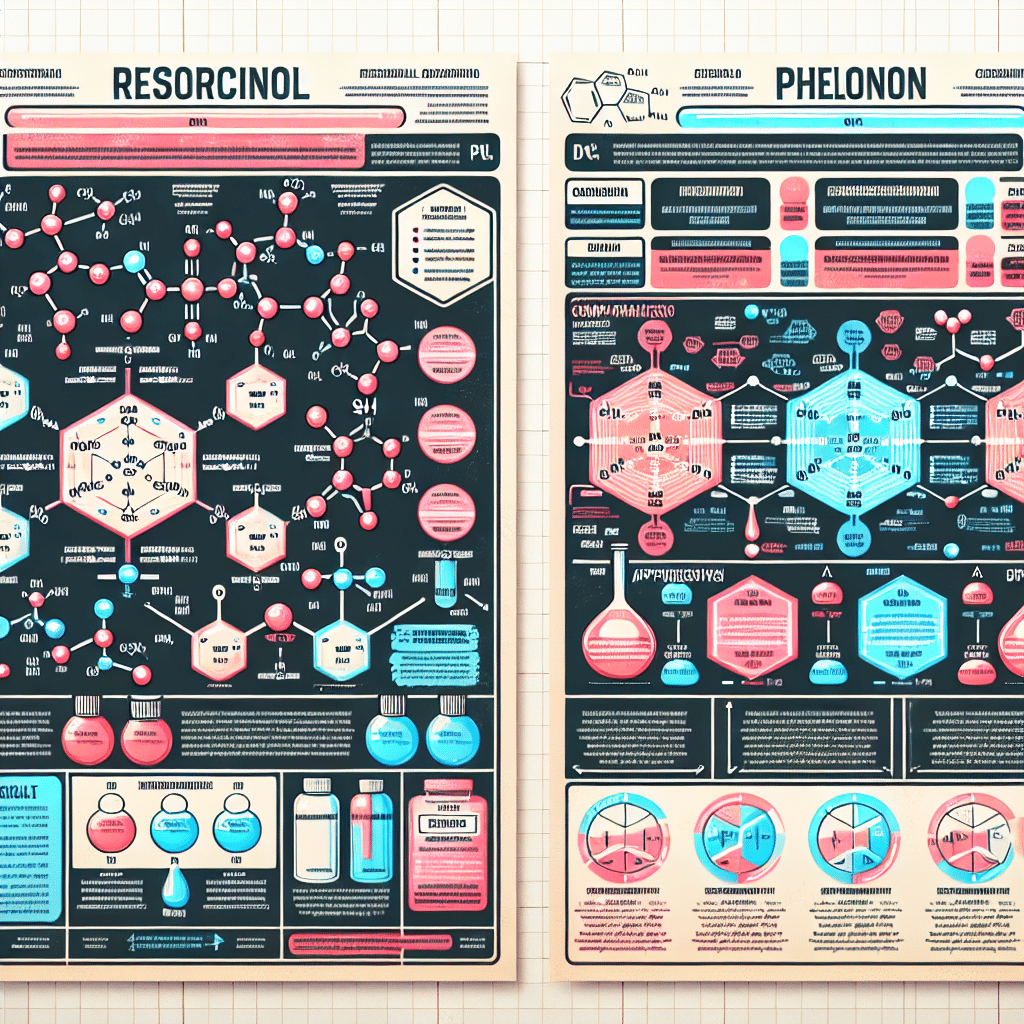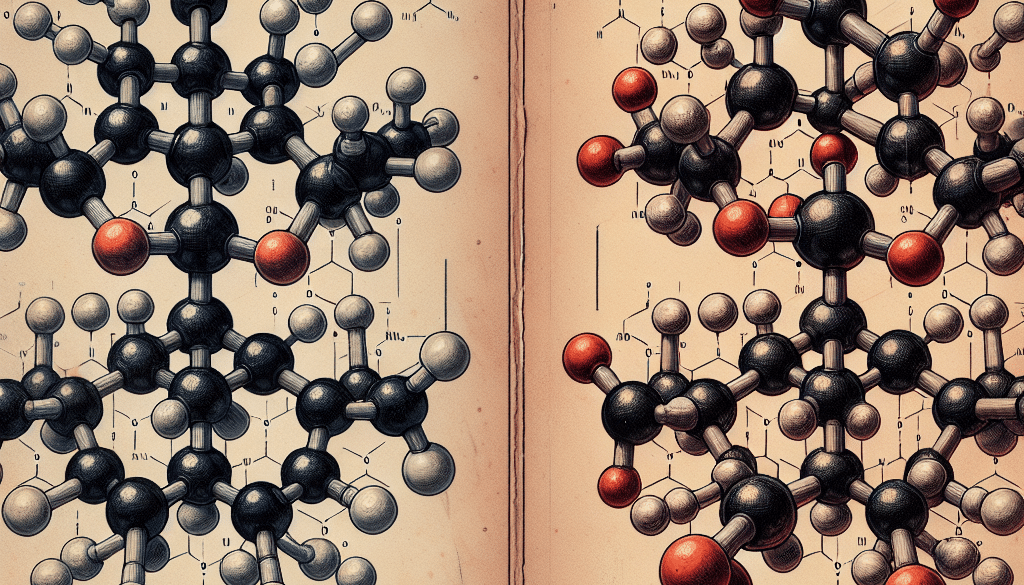Resorcinol and Phenol: Comparison
-
Table of Contents
- Resorcinol vs. Phenol: A Detailed Comparative Analysis
- Understanding Resorcinol and Phenol
- What is Resorcinol?
- What is Phenol?
- Comparing Properties and Uses
- Physical and Chemical Properties
- Industrial and Commercial Uses
- Safety Profiles and Environmental Impact
- Health Hazards and Safety Measures
- Environmental Considerations
- Case Studies and Real-World Examples
- Resorcinol in Wood Adhesives
- Phenol in Plastic Production
- Conclusion: Key Takeaways
- Discover ETChem’s Protein Products
Resorcinol vs. Phenol: A Detailed Comparative Analysis

Resorcinol and phenol are two chemical compounds that have been widely used in various industries due to their unique properties. While they share some similarities, their differences are significant enough to make them suitable for different applications. This article will delve into the characteristics, uses, safety profiles, and environmental impacts of both resorcinol and phenol, providing a comprehensive comparison of these two important chemicals.
Understanding Resorcinol and Phenol
Before comparing resorcinol and phenol, it’s essential to understand what each compound is and where it comes from.
What is Resorcinol?
Resorcinol is a dihydroxybenzene, a type of phenol, which is a benzene ring with two hydroxyl groups at the 1,3-positions. It is a white crystalline solid that is soluble in water, alcohol, and ether. Resorcinol is known for its antiseptic and disinfectant properties and is commonly used in medical and cosmetic applications.
What is Phenol?
Phenol, also known as carbolic acid, is an aromatic organic compound with the molecular formula C6H5OH. It is a white crystalline solid that is volatile in nature and has a distinctively sweet and tar-like odor. Phenol is a versatile compound used in the manufacture of plastics, resins, and as a starting material for many chemical syntheses.
Comparing Properties and Uses
Resorcinol and phenol have distinct properties that make them suitable for various applications. Here’s how they compare:
Physical and Chemical Properties
- Resorcinol: Has a melting point of 110°C and a boiling point of 281°C. It is less toxic than phenol and exhibits good stability under normal conditions.
- Phenol: Has a lower melting point of 40.5°C and a boiling point of 181.7°C. It is more toxic and can cause severe burns upon contact with skin.
Industrial and Commercial Uses
- Resorcinol: Used in the production of adhesives, especially for wood products and automotive tires. It is also found in hair dyes, acne treatments, and chemical peels due to its antiseptic properties.
- Phenol: Primarily used in the production of polycarbonates, epoxies, nylon, detergents, herbicides, and pharmaceuticals. It is also a precursor to many other chemicals and materials.
Safety Profiles and Environmental Impact
The safety and environmental impact of resorcinol and phenol are critical considerations in their use and handling.
Health Hazards and Safety Measures
- Resorcinol: Considered moderately toxic, it can cause skin irritation and sensitization. Prolonged exposure may lead to thyroid disruption. Safety measures include using personal protective equipment (PPE) and proper ventilation.
- Phenol: Highly toxic and corrosive, phenol can cause severe burns, systemic poisoning, and is potentially lethal in high doses. Strict safety protocols, including PPE, fume hoods, and emergency showers, are necessary when handling phenol.
Environmental Considerations
- Resorcinol: It is biodegradable and has a moderate environmental impact. However, its release into water bodies should be controlled to prevent potential harm to aquatic life.
- Phenol: Phenol is toxic to aquatic organisms and can cause long-term adverse effects in the aquatic environment. It is subject to strict regulations regarding its release and disposal.
Case Studies and Real-World Examples
Examining real-world applications provides insight into how resorcinol and phenol are utilized and managed in industry.
Resorcinol in Wood Adhesives
A study on the use of resorcinol-formaldehyde adhesives in the wood industry highlighted its superior bonding strength and resistance to environmental factors, making it ideal for outdoor applications such as marine plywood and construction.
Phenol in Plastic Production
Phenol’s role in producing polycarbonate plastics is well-documented, with its derivatives being essential in manufacturing items like CDs, DVDs, and bullet-resistant glass. The production process is carefully monitored to minimize phenol emissions and ensure worker safety.
Conclusion: Key Takeaways
In conclusion, resorcinol and phenol are two distinct compounds with unique properties and applications. Resorcinol is less toxic and used in adhesives and cosmetics, while phenol is a critical component in the production of plastics and other chemicals. Both substances require careful handling due to their health hazards and environmental impacts. Understanding their differences is crucial for selecting the appropriate compound for a specific application and ensuring safe and sustainable use.
Discover ETChem’s Protein Products
If you’re in the market for high-quality protein products, ETChem is your go-to source. Specializing in various types of collagen, ETChem offers marine, fish, bovine, chicken, and types I, II, and III collagen, among others. Their products are known for their neutral taste and instant solubility, making them ideal for a wide range of industries, including nutraceuticals, pharmaceuticals, cosmeceuticals, and food and beverage.
ETChem’s commitment to quality and customer satisfaction has made them a trusted supplier for leading global brands. Whether you need tailor-made collagen powder or finished collagen nutritional supplements, ETChem has the expertise and product range to meet all your protein needs.
About ETChem:
ETChem, a reputable Chinese Collagen factory manufacturer and supplier, is renowned for producing, stocking, exporting, and delivering the highest quality collagens. They include marine collagen, fish collagen, bovine collagen, chicken collagen, type I collagen, type II collagen and type III collagen etc. Their offerings, characterized by a neutral taste, instant solubility attributes, cater to a diverse range of industries. They serve nutraceutical, pharmaceutical, cosmeceutical, veterinary, as well as food and beverage finished product distributors, traders, and manufacturers across Europe, USA, Canada, Australia, Thailand, Japan, Korea, Brazil, and Chile, among others.
ETChem specialization includes exporting and delivering tailor-made collagen powder and finished collagen nutritional supplements. Their extensive product range covers sectors like Food and Beverage, Sports Nutrition, Weight Management, Dietary Supplements, Health and Wellness Products, ensuring comprehensive solutions to meet all your protein needs.
As a trusted company by leading global food and beverage brands and Fortune 500 companies, ETChem reinforces China’s reputation in the global arena. For more information or to sample their products, please contact them and email karen(at)et-chem.com today.




